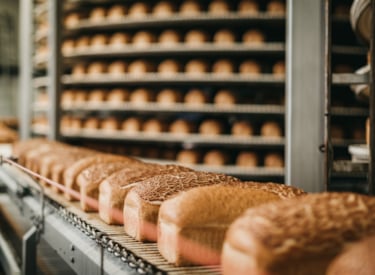Food Certification

What is Food Certification?
Food certification is an independent, third-party verification that your processes, systems, or products meet recognized standards for food safety, quality, sustainability, or ethical production. Certification can help you:
- Access new markets
- Meet retailer and customer requirements
- Improve internal processes
- Reduce risk and boost consumer confidence
The Certification Process
Our Certification Schemes
At Kiwa, we offer a wide range of globally recognized food certifications, tailored to every step in the supply chain:
➤ GlobalG.A.P.
Certification for safe and sustainable agricultural practices, from farm to fork.
➤ BRCGS & IFS
Food safety and quality standards for food manufacturing, packaging, and logistics.
➤ FSSC 22000
An ISO-based food safety system recognized by the Global Food Safety Initiative (GFSI).
➤ ISO 22000
A comprehensive food safety management system applicable to all organizations in the food chain.
➤ SQF Certification
SQF Certification helps manage risks using HACCP, ensuring your products meet industry, regulatory, and customer standards.
➤ Feed and ISO Certifications
➤ 2nd party supplier audits
We help you develop and certify tailored programs for unique supply chain requirements.
Why Partner with Kiwa?
- Trusted expertise in food, feed, and agriculture
- Global reach, local service in over 40 countries
- Experienced auditors with industry-specific knowledge
- Flexible and responsive approach to your needs
- Support beyond the audit, from training to improvement advice
Frequently Asked Questions
Which food certification should I choose?
- GlobalG.A.P. – for growers and primary producers
- BRCGS/IFS – for food manufacturers and processors
- FSSC 22000 / ISO 22000 – for comprehensive food safety systems
How long does the certification process take?
Timelines vary depending on the certification scheme and your level of preparedness. On average, it takes 1–3 months from the initial inquiry to certification.
What does the audit involve?
An auditor will review your documentation, inspect your facilities, and assess whether your practices meet the chosen standard. You’ll receive a detailed report and, if compliant, a certificate.
What happens if we don’t meet the requirements?
If non-conformities are found, you’ll receive time to make corrections. Kiwa supports you throughout the process to help you improve and successfully complete certification.
Why do businesses choose food certification?
Food certification helps you demonstrate compliance, increase customer confidence, meet buyer expectations, and access new markets.
How long is the certification valid?
The validity depends on the scheme. Most food certifications are valid for1 or 3 years and require regular surveillance or renewal audits to remain valid.
More information? Contact us!
Would you like to know more about food certification with Kiwa? Please contact us using the form below.